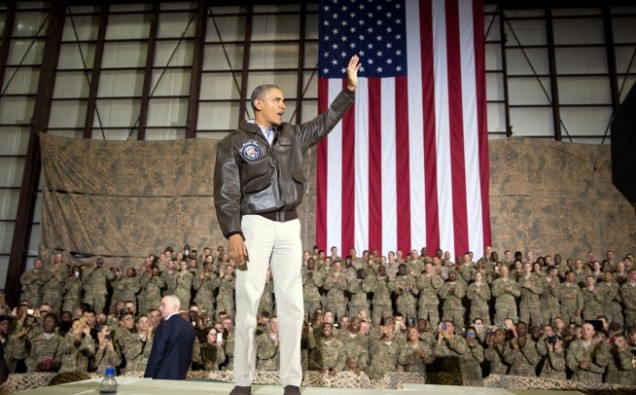
President Barack Obama, who has worked toward a total troops withdrawal from Afghanistan by end of next year, may change his plan in the wake of recent insurgent attacks in the country.
White House security aides point to a growing possibility the troops presence post-2016 would be significantly larger than what the President had envisaged last year when he announced the end of combat operation in the war-torn state that housed al-Qaeda leaders who planned 9/11 terrorist attacks.
“It is possible that he may change his mind,” White House Press Secretary Josh Earnest said at the Oct. 14 briefing when asked about the possibility of Obama changing his mind on the size of the American contingent.
“That will be a decision that is rooted in a longer-term evaluation of what will be necessary to counter the outgoing extremist threat in Afghanistan.”
That likely change of heart follows a two-week seizure of Kunduz – the Taliban militants’ first takeover of any Afghan city in the last 14 years, which has dealt a blow to hopes and optimism the Afghan security forces could finally be able to defend the country on their own.
Kunduz Photo: By TUBS [GFDL (http://www.gnu.org/copyleft/fdl.html) via Wikimedia Commons
From a peak of 32,000 in 2014, the U.S. presently have about 9,800 troops and before the Kunduz debacle, the goal was to reduce the military presence post 2016 to essentially a footprint around the U.S. embassy in Kabul.
That now seems a distant possibility – firstly because of diminishing prospects for reconciliation with the Taliban and, secondly, the fragility of Afghan security forces as exposed by the Kunduz capture. The year-old unity government in Afghanistan is also yet to achieve the level of desired political stability that could effectively deal with extremists.
The collapse of Iraqi forces against rising ISIL or Daish– though due to a different set of reasons – is also impacting the Obama administration’s re-think of Afghan strategy.
U.S. Gen. John F. Campbell, the commander of NATO’s Resolute Support Mission, told a House panel on Oct. 8, it would be foolish to think things can be cleared up in a couple of years in Afghanistan in the face of countless challenges, including the rise of ISIL.
“If we withdraw from Afghanistan, the security vacuum will arise and other extremist networks such as ISIL could rapidly expand and sow unrest throughout Central and South Asia and potentially target our homeland.”
As the general spoke to lawmakers, the same day Defense Secretary Ash Carter was telling U.S. allies at NATO headquarters in Brussels about the actions the Unite States was taking on Afghanistan that included adjusting the planned U.S. presence in Afghanistan in the light of current circumstance.
Growing possibilities of U.S. changing its plans for Afghanistan would be a major relief for Afghan people who don’t want the Americans to leave. The fall of Kunduz, though brief, is both a political and law enforcement challenge.
“This troop drawdown hasn’t been good for anyone, not for women, not for security, not for the economy,” said Manizha Naderi, the Chief Executive of Women for Afghan Women, an NGO. A women shelter, operated by WAW was reportedly one of the Taliban’s first civilian targets in Kunduz where they killed husband and son of the caretaker of that facility.
“I know Americans are sick and tired of this war and the war in Iraq. But I request the American people to have some stamina because nobody wants what happened in Iraq and Syria to happen here after billions of dollars spent here and thousands of troops died here,” she told Newsweek.
But Afghan security or curbing the Taliban insurgency is not just a question of military capability. It is as much a question of political reconciliation with the Taliban, who must respect democratic constitution and rights of women – a big test for the Kabul government for a long-term solution. Economically, it is the heavy opium production that fuels Taliban insurgency – therefore a need to check the poppy cultivation and expand economic opportunity for people, as part of the larger policy to achieve peace and stability.














